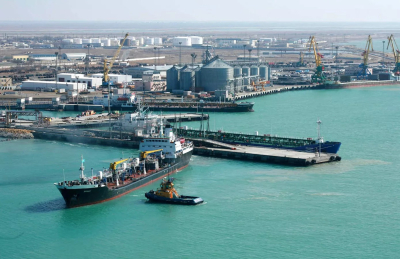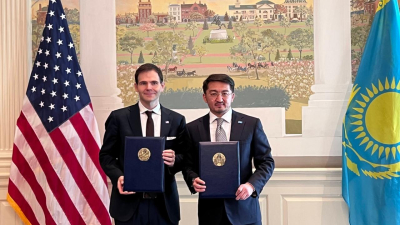The government creates the illusion that everyone agrees to the construction of a nuclear power plant
Overstretched talks for the construction of a nuclear power plant (NPP) in Kazakhstan have lasted for more than a decade. In 2021, however, President Kassym-Jomart Tokayev accelerated the negotiations. Since then, the authorities have been scrambling to create the illusion of public consensus, trying to justify a decision they had already made.
From the soft rhetoric of “we will study the issue”, Tokayev gradually moved to a definite sentence: “without nuclear power plants, Kazakhstan will lose the economy”. On the one hand, the government regularly emphasizes that there is no final decision yet. On the other hand, all their actions say the opposite.
Back in 2019, the ministry of energy chose the village of Ulken, on the shores of Lake Balkhash, as the preferred site for a NPP. At the time, the government also promised to involve Kazakhstanis in the discussion, should a final decision on the project be made.
Four years later, the government refused to have a wide discussion or a referendum to check the pulse of the people regarding the need for a NPP, the potential risk for the ecology, and prospective costs.
The reason for moving forward with this decision is simple: the government should not show any sign of doubt. Consent is manufactured, while anyone who disagrees is censored.
The residents of Ulken were handed a tough ultimatum from above: either hosting a NPP or desolation without public investment. Any doubt about the potential consequences of the drying up of Lake Balkhash in the context of the work of the plant should not be raised.
Just to keep the hope of potential investment, the residents are ready to agree. Taking advantage of their desperation, the government held a public discussion with them to demonstrate their consent, even though a concrete plan does not yet exist.
The government can thus hail the growing popular support for the NPP. To fabricate approval, they use a number of public influencers. Here is what Beibit Alibekov said at the end of his video from Ulken: “Yes, almost all people are for the construction of a nuclear power plant. Yes, we need ‘green nuclear power’.”
Long-form interviews of scientists and experts close to the government inevitably confirm this thesis. None of them includes an independent analysis that addresses costs, risks, or alternatives.
Activists, in turn, point to the environmental and geopolitical risks that the launch of a NPP will entail.
The construction of a NPP poses a threat not only to Lake Balkhash, but also to the entire environment. Moreover, activists fear serious accidents that could occur due to the negligence of the government or plant employees.
And they also see the threat of the loss of sovereignty, since Russia, should Rosatom become the main contractor for the construction of the NPP, will be able to manipulate Kazakhstan to its own benefit.
Despite all this, the government continues to pursue its own goals, forcing people to agree to harm themselves.










